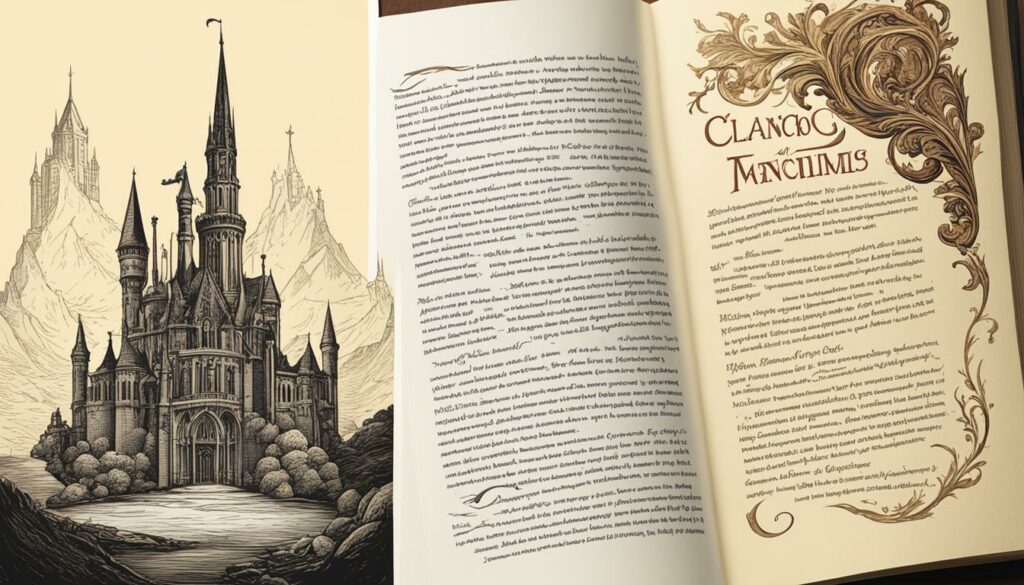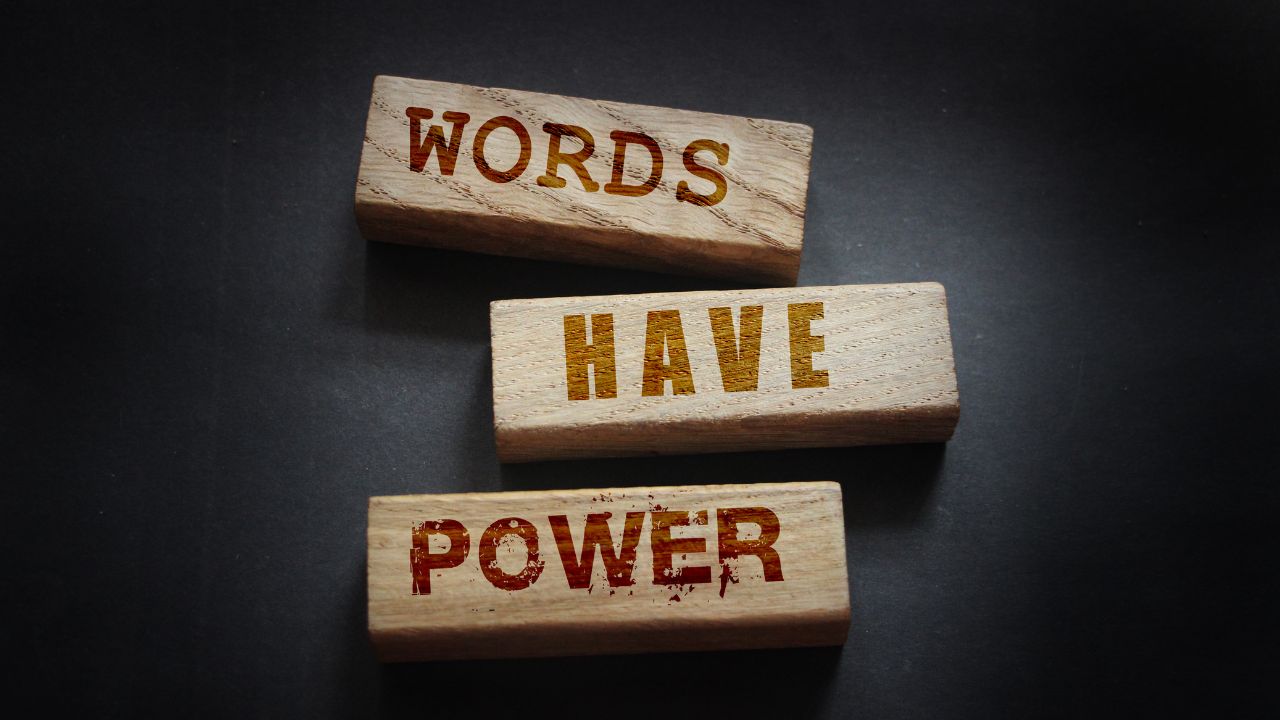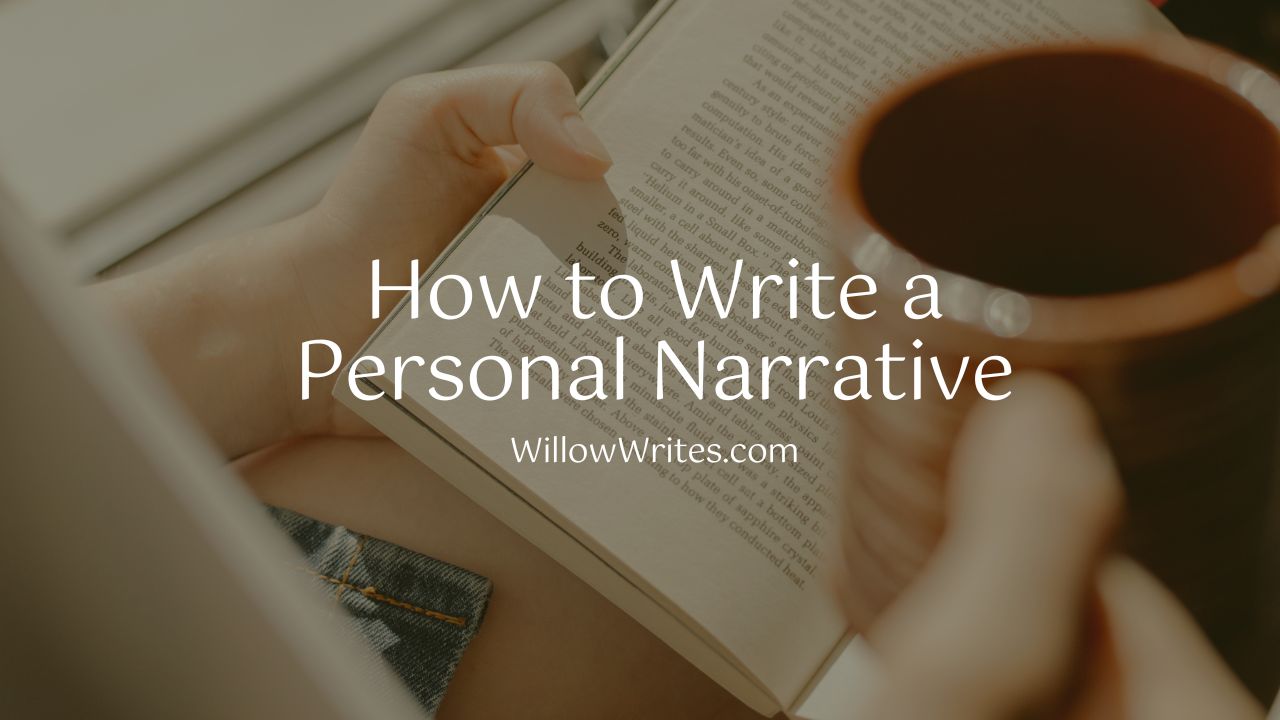Are you familiar with the terms “novel” and “book”? They are often used interchangeably, but have you ever wondered if there are any significant differences between the two? Is a novel just a type of book, or is there more to it? Let’s dive into the intriguing world of literature and uncover the distinctions between a novel and a book.

Key Takeaways:
- A novel is a specific type of book, with distinct elements that set it apart from other literary works.
- Novels typically have a more complex structure and focus on storytelling through characters, plot, and settings.
- Books, on the other hand, encompass a wider range of literature, including novels, non-fiction works, and poetry collections.
- Novels often undergo a more rigorous publishing process and target a broader audience than other types of books.
- While both novels and books can contain intertextuality and hold historical significance, novels tend to make more extensive use of these elements.
Definition of a Novel
Let’s start by understanding what a novel actually is. A novel is a fictional narrative that tells a story through characters, plot, and settings. It typically has a more complex structure, allowing for the development of multiple storylines and subplots.
| Novel | Book |
|---|---|
| Focuses on storytelling and character development | Encompasses various forms of literature |
| Involves a more intricate plot structure | May not adhere to a specific narrative structure |
| Typically longer in length | Can vary in length |
| Allows for in-depth exploration of themes | May not solely focus on storytelling |
Key Differences: Novel vs. Book
While novels are a specific type of book, they differ in terms of their focus, structure, and length. Novels offer a deeper immersion into storytelling, with intricate plots and development of characters. On the other hand, books encompass a broader range of literature, including novels, non-fiction works, poetry collections, and more, without specific constraints on structure or length.
Definition of a Book
While a novel is a specific type of book, it’s important to understand that the term “book” encompasses a broader range of literature. A book can refer to various forms of written works, including:
- Novels
- Non-fiction works
- Poetry collections
- Essays
- Biographies
- Autobiographies
- And more
Books come in different shapes and sizes, catering to diverse interests and genres. They can be either fiction or non-fiction, providing readers with a wide array of choices and literary experiences.
“Books are a uniquely portable magic.”
From gripping novels that transport us to different worlds to thought-provoking non-fiction works that enlighten and educate, books have the power to captivate our minds and ignite our imaginations.
Not All Books Are Novels
Although a novel is a specific type of book, it’s important to note that not all books are necessarily novels. Novels are a distinct form of storytelling that relies on character development, plot, and narrative structure. On the other hand, books encompass a broader range of literary forms that extend beyond the realm of fiction.
The versatility of books allows for exploration of various subjects and genres, providing readers with a diverse range of literature to engage with and enjoy.

Writing Style and Length
When comparing novels and books, one of the key distinctions lies in their writing style and length. Novels, known for their immersive storytelling, often offer readers a deeper exploration of characters and themes. With their longer length, novels have the space to delve into intricate details and develop complex narratives. This allows readers to fully immerse themselves in the story and connect with the characters on a deeper level.
Books, on the other hand, come in various forms and lengths. While some books may be similar in length to novels, their focus may not solely be on storytelling. Books encompass a wide range of literature, including non-fiction works, poetry collections, and more. This diversity allows for different writing styles and subject matters, catering to a broader audience.
“Novels offer readers a rich and immersive experience, allowing for a deeper emotional connection with the story and characters.”
Contrasting Writing Styles
Novels: Longer length, detailed storytelling, and deep exploration of characters and themes.
Books: Varying lengths, diverse writing styles, and can include non-fiction and poetry.
The Impact on the Reading Experience
The writing style and length of a novel contribute to a more comprehensive and immersive reading experience. Readers have the opportunity to fully immerse themselves in the world of the story and connect with the characters on a deeper level. The intricate details and extensive character development in novels often provoke emotional responses and provide a sense of fulfillment to readers.
Books, with their versatility and varied writing styles, offer readers a different kind of reading experience. They provide the opportunity to explore different subjects, learn new information, and appreciate various literary forms. Readers can select books that align with their specific interests and reading preferences, allowing for a more customized and diverse reading experience.

The Writing Style and Length Infographic:
| Novel | Book |
|---|---|
| Longer length | Varying lengths |
| Detailed storytelling | Diverse writing styles |
| Deep exploration of characters and themes | Includes non-fiction and poetry |
Table: Contrasting Writing Styles and Lengths of Novels and Books
Structure and Narrative
Another distinction between novels and books lies in their structure and narrative. Novels often follow a specific plot structure, including exposition, rising action, climax, and resolution. This carefully crafted structure allows for a satisfying and engaging storytelling experience, drawing readers into the world of the novel. The plot unfolds gradually, building tension and leading to a climactic moment before gradually resolving the conflicts and wrapping up the story.
Books, on the other hand, may not adhere to a specific narrative structure. This is especially true for non-fiction works or collections of poetry, which may focus more on presenting information or exploring different themes rather than following a traditional plotline. These types of books often offer a more varied reading experience, with each chapter or section offering unique insights or perspectives.
Sample Table: Structure Comparison
| Aspect | Novels | Books |
|---|---|---|
| Structure | Follows a specific plot structure: exposition, rising action, climax, resolution. | May not adhere to a specific narrative structure, especially in non-fiction works or poetry collections. |
| Development | Allows for character development, multiple storylines, and exploration of themes. | Focuses on presenting information or exploring different themes, less focused on character development. |
| Engagement | Engages readers with a carefully crafted plot and gradual unfolding of events. | Offers a more varied reading experience with each chapter or section presenting unique insights. |
As we can see from the table above, novels have a more defined structure and allow for deeper character development and exploration of themes. On the other hand, books have the flexibility to deviate from a specific narrative structure, offering readers a more varied reading experience.

In the next section, we will explore the variety of genres that both novels and books can encompass, further highlighting the similarities and differences between the two.
Genre Variety
One of the fascinating aspects of both novels and books is the incredible diversity of genres they encompass. Whether you prefer the immersive narrative of a novel or the varied content within different types of books, there is sure to be a genre that captures your interest. Let’s explore the wide range of genres found in both novels and books:
Mystery
Delve into the enigmatic world of mystery and suspense, where thrilling plot twists and puzzling clues keep readers on the edge of their seats.
Romance
Indulge in the enchanting stories of love and passion, where relationships blossom, hearts are broken, and happily-ever-afters are sought.
Science Fiction
Venture into the realms of the future, where advanced technology, interstellar adventures, and mind-bending concepts unfold.
Fantasy
Escape into enchanting realms of magic, mythical creatures, and epic quests, where imagination knows no bounds.
Historical Fiction
Travel back in time and experience events and cultures of the past through fictionalized stories grounded in historical research and imagination.
Biography
Gain insights into the lives of influential individuals through biographical works, exploring their achievements, struggles, and impact on society.
Self-help
Find inspiration and guidance in self-help books, offering advice and strategies for personal growth, motivation, and success.
Poetry
Immerse yourself in the beauty of poetic language, where emotions are expressed in rhythm, meter, and vivid imagery.

“The beauty of literature lies in its ability to transport us to different worlds and evoke a wide range of emotions. Whether you’re a fan of mystery, romance, science fiction, or any other genre, novels and books offer an endless array of captivating stories to explore.” – Unknown
Remember, the genre of a book or novel is defined by its content and style, rather than the format itself. So, whether you’re diving into a novel or exploring a non-fiction work, the genre holds the key to your literary adventure.
Publishing Standards
When it comes to publishing, there are distinct differences in the standards between novels and other types of books. Novels undergo a more rigorous editing and publishing process, as they are expected to meet certain literary standards before being released to the public. This meticulous approach ensures that novels offer a high-quality reading experience with well-developed characters, engaging plots, and compelling storytelling.
Novels often undergo professional editing to refine the language, structure, and overall coherence of the story. This ensures that the final product is polished and ready for publication. Professional editors work closely with authors to enhance the literary value of the novel, while also ensuring that it is accessible and engaging to a wide range of readers.
On the other hand, the publishing requirements for books may vary depending on the genre or subject matter. While some books also undergo rigorous editing and publishing processes, others may have different standards or preferences. For example, non-fiction books may require fact-checking and expert review, while poetry collections may focus more on artistic expression and stylistic choices.
Overall, the publishing standards for novels reflect a commitment to literary excellence and storytelling mastery, while the standards for other types of books may be more flexible and genre-specific.
Audience and Marketability
When it comes to the target audience and marketability, novels and books have distinct differences. Novels are generally crafted to appeal to a broader readership, with their immersive and detailed storytelling captivating a wide range of individuals. This broader appeal often translates into higher potential for commercial success, as novels can attract a larger number of readers and generate greater interest from publishers and literary agents.
On the other hand, books may target more specific markets or cater to niche readerships. While novels aim to capture the attention of a broad audience, books can be tailored to meet the interests and preferences of a particular group or community. This niche approach allows books to tap into specialized topics or genres, satisfying the unique needs of readers with specific tastes.
Overall, the difference in audience and marketability between novels and books stems from their distinct objectives. Novels strive to achieve widespread recognition and popularity, appealing to a diverse range of readers. Books, however, may focus on catering to a specific audience, leveraging their niche appeal to establish a dedicated readership.

| Aspect | Novel | Book |
|---|---|---|
| Target Audience | Broader readership | Caters to specific markets or niche readerships |
| Potential for Commercial Success | Higher due to wider appeal | Varies based on niche focus |
Intertextuality and References
Both novels and books share the ability to incorporate intertextuality and references to other works, but there are distinct differences in the extent and nature of their usage. Novels, in particular, often make more extensive use of intertextuality, drawing inspiration from literary classics and well-known works to enrich the reading experience.
Through intertextuality, novels create connections, add depth to their storytelling, and engage readers who are familiar with the referenced works. This technique allows authors to pay homage to influential literary pieces and provide new perspectives on familiar themes or characters.
An excellent example of intertextuality in novels can be seen in Gabriel Garcia Marquez’s masterpiece, “One Hundred Years of Solitude,” which alludes to various cultural and historical events in Latin America. By incorporating intertextual references, Marquez establishes a complex narrative that resonates with readers who appreciate and recognize these connections.
On the other hand, books, encompassing a diverse range of literature types, may incorporate intertextuality and references, but with a broader scope. This allows books to reference a wider range of subjects, including real-life events, scientific discoveries, cultural phenomena, and more.
For instance, non-fiction books often incorporate references to scholarly research, historical events, or personal anecdotes to support their arguments and provide a deeper understanding of the subject matter. Similarly, books in the self-help genre may draw inspiration and references from psychological studies, cultural practices, or spiritual teachings to guide readers in their personal growth journeys.
In summary, while both novels and books can include intertextuality and references, novels tend to focus more on intertextuality, often referencing literary classics and well-known works. On the other hand, books incorporate a broader range of subjects, including real-life events, scientific theories, cultural practices, and more.
Notable Examples of Intertextuality in Novels:
- “One Hundred Years of Solitude” by Gabriel Garcia Marquez
- “Ulysses” by James Joyce
- “Pride and Prejudice” by Jane Austen

Image: Illustration depicting the similarities between a novel and a book.
Historical Significance
Both novels and books have the power to hold historical significance. While novels capture the spirit of a particular time period or reflect societal changes, providing valuable insights into the past, books also play a crucial role in documenting history or offering perspectives on specific topics.
Novels, with their immersive storytelling and intricate character development, often serve as time capsules that transport readers to different eras. Through vivid descriptions and well-crafted narratives, novels shed light on the culture, politics, and social dynamics of a bygone time. They offer glimpses into the experiences and struggles of individuals, presenting a window into history that can sometimes be more impactful than historical textbooks alone
On the other hand, books encompass a wider array of literary forms, including non-fiction works, biographies, autobiographies, and academic treatises. These books can provide a direct account of historical events, document the perspectives of key figures, or explore significant moments in history from a fresh angle. Moreover, books can delve deep into specific subjects, unearthing hidden stories or offering critical analysis that contributes to a deeper understanding of the past.
Both novels and books, in their unique ways, allow readers to connect with history, fostering a sense of empathy and appreciation for the past. Through their narratives and insights, they enable us to learn from history and shape our understanding of the world we live in today.
The Role of Novels in Capturing Historical Spirit
The novels provide a vivid portrayal of historical periods, reflecting sociocultural changes and offering valuable insights into the past. Through compelling narratives and well-developed characters, novels transport readers back in time and unveil the essence of a bygone era.
The Significance of Books in Documenting History
Books, encompassing various literary forms, play a vital role in documenting history. They offer direct accounts of historical events, shed light on different perspectives, and provide critical analyses that contribute to a comprehensive understanding of the past.
| Novels | Books |
|---|---|
| Captures the spirit of a specific time period | Provides direct accounts of historical events |
| Reflects societal changes and cultural dynamics | Documents the perspectives of key figures |
| Transport readers to different eras through immersive storytelling | Explores significant moments in history from various angles |
| Offers insights into the experiences and struggles of individuals | Delves deep into specific subjects to uncover hidden stories and provide critical analysis |

Personal Preferences and Reading Experience
The choice between reading a novel or a book often comes down to personal preferences and the desired reading experience. While novels and books share similarities, they also offer distinct qualities that cater to different readers.
For those who crave immersive storytelling and deep character development, novels are often the preferred choice. Novels have the space and length to explore complex narratives, allowing readers to fully engage with the plot, characters, and the world created by the author. With descriptive language and detailed storytelling, novels can transport readers to different times and places.
On the other hand, books offer a variety and versatility that may appeal to readers seeking different types of literature. Books can encompass novels, non-fiction works, poetry collections, and more. This diverse range of content provides readers with the opportunity to explore different genres, perspectives, and writing styles.
“Novels allow you to sink your teeth into a rich, multi-layered story, while books offer a buffet of literary delights where you can sample various genres and ideas.” – Jane Smith, avid reader
When it comes to personal preferences, some readers may lean towards novels as they enjoy the depth, complexity, and emotional connection they can foster. The long-form format of novels allows for a more comprehensive exploration of characters, themes, and plotlines. Other readers, however, may find enjoyment in the variety that books offer, enabling them to switch between different genres and authors.
Ultimately, the choice between reading a novel or a book depends on individual tastes and what type of reading experience one seeks. Some readers may even alternate between the two, depending on their mood, interests, and time constraints.
The Pros and Cons of Novels and Books
For a clearer understanding, let’s summarize the pros and cons of novels and books:
| Novels | Books |
|---|---|
| Immersion in a rich and detailed narrative | Diverse range of genres and writing styles |
| Deeper character development | Opportunity to explore different subjects and perspectives |
| Emotional connection with the story | Variety and versatility in content |
| Longer length, allowing for more complex storytelling | Potential for discovering new authors and ideas |
As with any form of entertainment, there is no right or wrong choice when it comes to reading novels or books. Both offer unique experiences and the opportunity to expand one’s literary horizons. It ultimately boils down to personal preferences and the desire to immerse oneself in the captivating world of literature.

Conclusion
In conclusion, the distinction between a novel and a book lies in their unique characteristics and purposes within the literary world. While a novel is a specific type of book, it offers a distinct experience through its in-depth storytelling, complex structure, and character development. Novels have the power to immerse readers in vivid narratives, allowing them to explore different perspectives and emotions in a way that other types of books may not.
On the other hand, books encompass a broader range of literary forms, including novels, non-fiction works, poetry collections, and more. They cater to diverse reading preferences and cover a wide array of subjects. Books provide opportunities for readers to delve into a variety of genres and expand their knowledge on different topics.
Understanding the differences between novels and books enriches our appreciation for the immense artistic and intellectual value of literature as a whole. Whether you prefer the immersive journey offered by a novel or the versatility and variety of books, both mediums contribute to the vibrant world of storytelling and knowledge sharing. So, embrace the richness of literature, dive into a captivating novel, or delve into an intriguing book – there’s something for everyone.
FAQ
What is the difference between a novel and a book?
While a novel is a specific type of book, there are distinct differences between the two. A novel is a fictional narrative that tells a story through characters, plot, and settings. On the other hand, a book is a more general term that encompasses various forms of literature, including novels, non-fiction works, poetry collections, and more.
How do novels and books differ in terms of writing style and length?
Novels tend to be longer and more detailed, allowing for deeper character development and exploration of themes. On the other hand, books can vary in length and may not solely focus on storytelling. Some books may contain non-fiction information, poetry, or other forms of literature.
What distinguishes novels from books in terms of structure and narrative?
Novels often follow a specific plot structure, including exposition, rising action, climax, and resolution. This structure allows for a more cohesive and engaging storytelling experience. On the other hand, books may not adhere to a specific narrative structure, especially in the case of non-fiction works or poetry collections.
Can novels and books exist within the same genres?
Yes, both novels and books can exist within a wide range of genres, such as mystery, romance, science fiction, fantasy, and more. The genre is determined by the content and style of the writing, rather than the format itself. So, both novels and books can belong to the same genre category.
How do novels and books differ in terms of publishing standards?
Novels often undergo a more rigorous editing and publishing process compared to other types of books. Novels are typically expected to meet certain literary standards and undergo professional editing before being published. Books, on the other hand, may have different publishing requirements depending on the genre or subject matter.
Who is the target audience for novels and books?
Novels are generally aimed at a broader audience and have a higher potential for commercial success. They are often written to appeal to a wide range of readers. Books, however, may target niche markets or cater to specific readerships. The target audience for a book can vary depending on the subject matter and genre.
Do novels and books contain intertextuality and references?
Both novels and books can contain intertextuality and references to other works. However, novels often make more extensive use of intertextuality, with references to literary classics or other well-known works. Books, on the other hand, may reference a broader range of subjects beyond literature.
Can novels and books hold historical significance?
Yes, both novels and books can hold historical significance. Novels often capture the spirit of a particular time period or reflect societal changes, providing valuable insights into the past. Books, similarly, can document history or offer perspectives on specific topics, depending on the genre and subject matter.
What factors should I consider in choosing between a novel and a book?
The choice between reading a novel or a book often comes down to personal preferences and the desired reading experience. Some individuals may prefer the immersive and detailed storytelling of a novel, while others may prefer the variety and versatility offered by different types of books, such as non-fiction works or poetry collections.
What are the key differences between novels and books?
In summary, novels are a specific type of book that offer in-depth storytelling and character development, while books encompass a wider range of literary forms. Novels often follow a specific plot structure and rely on detailed writing, whereas books can vary in length, format, and content, catering to different reading preferences and genres.











